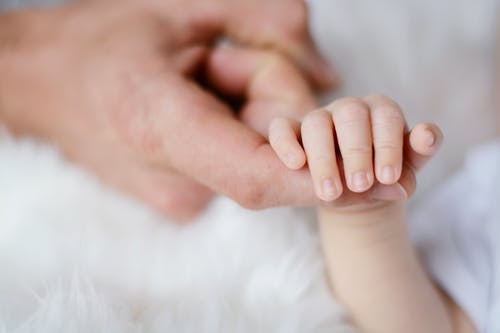Parenting 101

Parenting 101
Are you a parent or grand-parent? If so then this piece is a celebration of you. After the last few weeks of ‘heavy’ topics, this opinion piece is a light-hearted and hopefully humorous summary of my top ‘parenting 101’ tips as a mum of 7, soon-to-be grandparent and GP.
- Forgive your mistakes. If you are human you will make lots of them, and that’s a guaranteed fact. As a recovering perfectionist, aiming for perfection is one of the worst things you can do as a parent so give it away right NOW! From my personal experience it’s my absolute best tip. That doesn’t mean to say you shouldn’t strive to be the best possible parent but beating yourself up when you get it wrong will make the situation a whole lot worse. It will also impact your long-term health as regret and self-flagellation are forms of stress.
- Jolly-jumpers. One of my favourite toys for entertaining babies. When they get to the age of trying to climb out of the car-seat/bassinette but aren’t quite able to crawl they tend to get very clingy and frustrated and a jolly jumper allows you free hands to prep dinner etc. without having a fractious baby to entertain. Secure them in it and let them happily bounce away in sight of you. A caveat with this one is that their neck muscles must be strong enough to easily hold up their head.
- Be mindful. Mindfully doing everything, from making a cup of tea to playing with your child is a key ingredient for optimal health. As an example and a confession, I remember occasional moments of frustration with the length of time it took my daughters to wash their hands after toileting, partly because they seemed to be keen to make a game out of it and partly with having so many daughters I used to feel as if I lived in the toilet! I now see these moments (now few and far between as they are older) as opportunities to chat to them.
- Unsolicited advice aka nagging, though frustrating at the time, does pay off eventually. A classic example is with my son, now 19, who stubbornly resisted my attempts to get him to eat healthy food throughout his teenage years. That was until he went to uni and rang me one day and asked, “what was that stuff you were saying about healthy food”! However, I will add a caveat to this advice, teenagers usually do the opposite of what you say so be careful what you wish for!
- Pick your battles. For example, is having your child pick up their toy on the floor or empty the dishwasher more important? With the naturally immature childs’ brain they can only process so many requests at once, so one thing at a time.
- Rewards work better than consequences. Children (but not so much teenagers) love to please you and so a carefully worded ‘it would be really helpful if you would help me fold the washing’ works much better than ‘if you don’t fold the washing you won’t be able to watch TV’ and is less likely to result in washing that needs re-folding!
- Don’t take things personally. When they fire comments such as ‘I hate you’ at you they are either testing the boundaries; having a hormonal flare if a teenager, having a bad day, or have not yet fully developed their frontal lobe control. A great explanation of this, in relation to teenagers, can be found in Nigel Latta’s ‘Politically incorrect guide to teenagers’. He suggests thinking of teenagers as being like a demented elderly relative with similar brain processing ability. You simply must read this book if you have a teenager, it is a life-saver.
- When ‘discussions’ aka arguments with teenagers are going pear-shaped call a timeout and suggest you discuss it later. It’s amazing what time, and/or some stress management techniques can do to defuse situations. One memorable incident was when my son magically calmed down after being told he couldn’t use the internet 24 hours a day thanks to me distracting myself with 10 minutes of yoga, despite him sitting next to me and trying to stare me out with a screwed up teenage angry face.
- Unless you have an industrial size shipping container, photograph their art and schoolwork. Every child will proudly give you their art and schoolwork from the very 1st scribble, through to stickmen, first handwriting exercises and beyond. The obligatory period of adorning the fridge or walls leads to the obvious question-what next? After years of filling boxes of artwork, I learned to photograph them to preserve the memory. These memories are as important for you as a parent as it is for them when they are older to show their children.
I could go on, as I have enough tips to fill a book, but that will do for now. Happy parenting/grandparenting!
